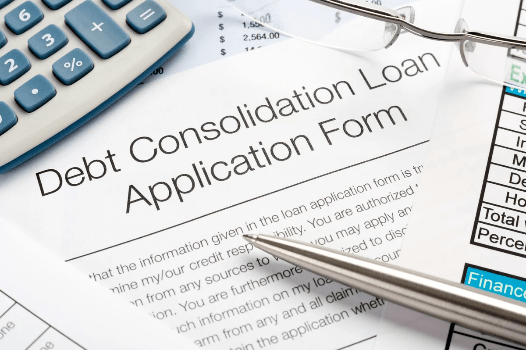Debt consolidation is a method of reducing existing debts by merging them all under one single loan and paying them off by another credit. Though it allows the customer to clear off their debts at a relatively lower interest rate, it has associated benefits and risks that every borrower should be aware of.

Advantages Of Debt Consolidation
Individuals can opt for a loan against property; it is considered one of the most sought-after ways to consolidate high interest unsecured debts. You can get out of the debt trap with a loan against property and pay a lower interest rate on the amount borrowed.
Must Read: Loan Against Property Interest Rate
Availing a loan against property helps an individual procure an amount against his/her mortgaged property and clear his existing debt.
- High Quantum – Individuals are eligible to avail an amount against the market value of their property. Loans against property from top lenders can disburse loan amounts of up to Rs.3.5 crore.
- Flexible Repayment Tenor – The repayment duration of a loan against property can extend up to 20 years, thus providing an individual with ample scope to clear off loan payments.
- Easy To Meet Eligibility Criteria – Eligibility criteria for a loan against property are easy to meet, for both salaried and self-employed individuals.
- Part-Prepayment & Foreclosure – Individuals have the provision of part-prepaying their debt consolidation loan to settle more of principal and less of interest component with sum availed through a loan against property and repay the remainder dues later.
Disadvantages Of Debt Consolidation
Loan Against Property for debt consolidation through a loan against property helps repay the borrowed amount after they mortgage a property to the lender. Subsequently, if they fail to follow through the repayment schedule of this secured loan, the lender reserves the right to liquidate the mortgaged property and recover the remaining debts.